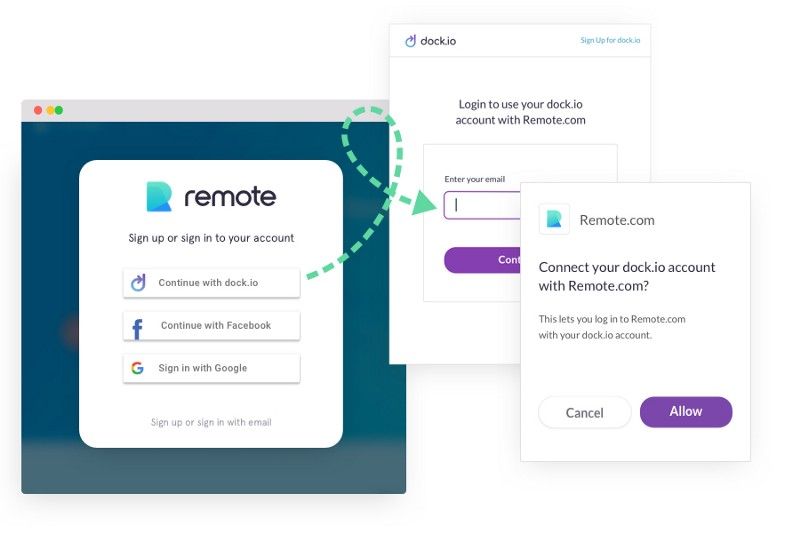As usual, the team has been hard at work ramping velocity and moving the needle on multiple projects. The past two weeks consisted of work on two larger projects, the Gateway and OAuth projects, as well as additional web designs and App optimizations.
Dock.io Gateway — Stage 3
Stage 3 of the Gateway project has been completed (view dev 1 for a refresh). All that is left is deploying, testing, and coupling it with the oAuth project. Gateway Stage 3 consisted of:
- Calculation of the Merkle roots for users’ data packages. A Merkle root is a cryptographic construct that enables fast and reliable authentication of data fragments in a tree structure. Thanks to that we can implement sharing only subsets of a user’s data while still providing the ability for the receiver to verify that it is actually a part of that user’s whole data.
- ECC-based encryption of the user’s data. ECC stands for Elliptic Curve Cryptography and it is the kind of encryption that both Bitcoin and Ethereum use for their private/public keys. This allows us to use actual Ethereum (and thus — DOCK) account keys to encrypt/decrypt data meant specifically for another Dock account.
Dock.io App OAuth — Stage 1 (2 stages total)
OAuth will allow users to login to apps in the network with their dock.io accounts. Users will also be able to import data from their dock.io account in seconds, creating instant on-boarding and removing the need for manually adding information to new apps.
With stage 1 complete, Remote.com will be the first partner app to use the Dock OAuth and the goal is to have it live in our next dev cycle, Development Update 4.
oAuth Stage 1 consisted of:
- Dock-auth service: dock-auth is a microservice that will handle authentication. It will enable third party applications to integrate with the dock ecosystem in order to make the pushing and pulling of data possible.
- Integrate Dockapi with Dock-auth: dock-auth will be integrated into our existing application to provide it with OAuth capabilities. From that point, external applications can implement an OAuth client to let their users import their dock data.
- Integrate Remote with Dockapi: The first integration we’ll work on is between Dock and Remote.com. Remote.com will allow their users to log in with their Dock account. In the future they will also be able to seamlessly move their professional data between Remote and Dock.
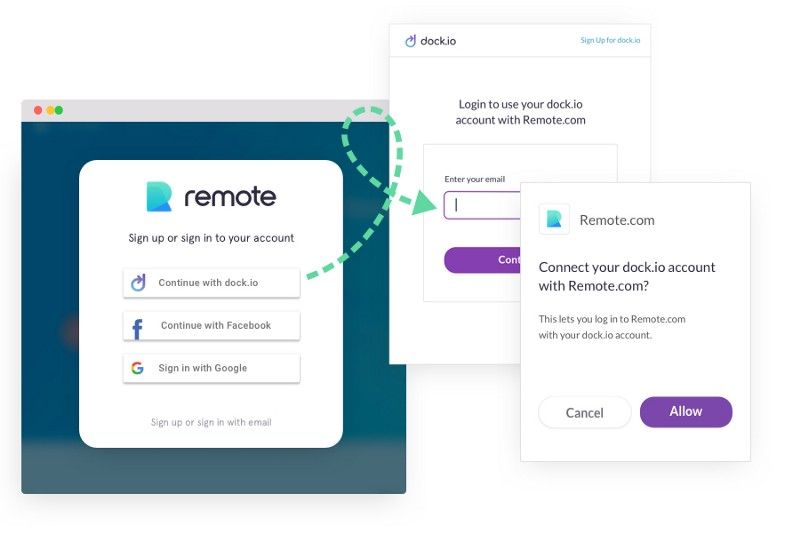
Developers Web Page
A big part of building the dock.io network is growing our partner network. We have amazing traction with partners, which we highlighted in our post earlier this week.
Todd and team pushed an awesome new web page to promote our developer program and help capture new partner interest. This is one step in a larger effort to build our developer portal.
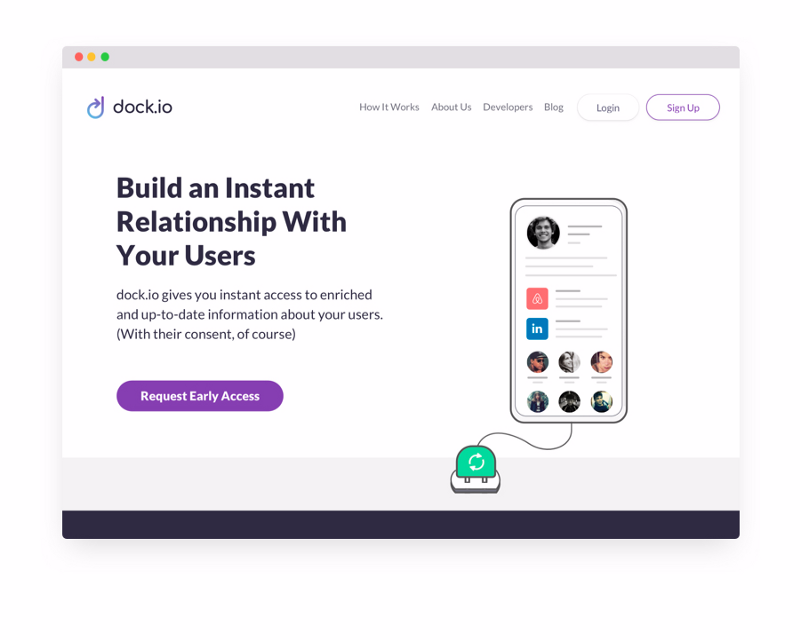
LinkedIn Data Import: Safari Fix
We provided a fix for an issue in Safari when importing your LinkedIn data. Safari has a setting to auto unzip files, which caused an issue when importing. Below is the screenshot the the work around we provided.
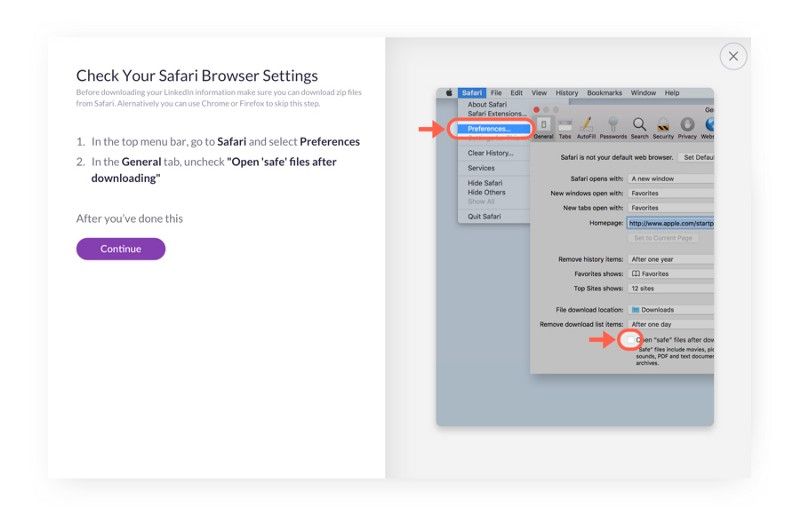
Network Manager — Filter Contacts by Source
You can now filter your network by source to know where and how you are connected to someone online.
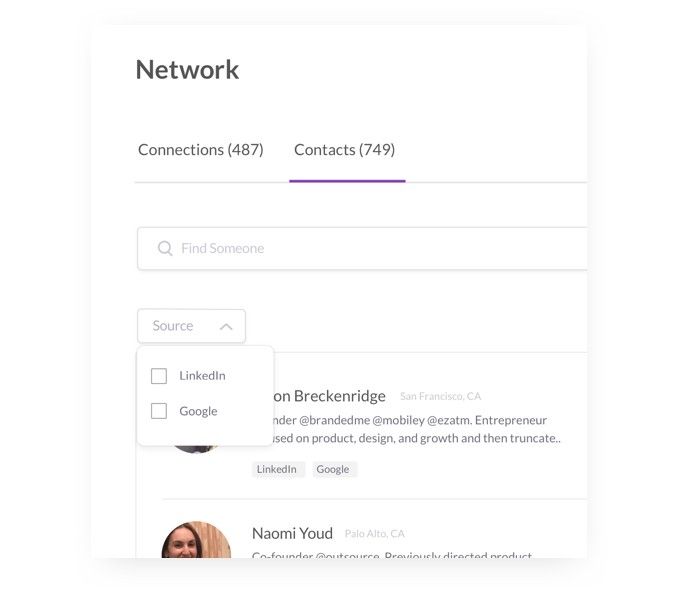
Earn Program — Dollars to Tokens
We updated rewards for the Earn program from dollar amounts to number of tokens. It made more sense to use a set amount of tokens per referral vs a dollar amount which could fluctuate day to day.
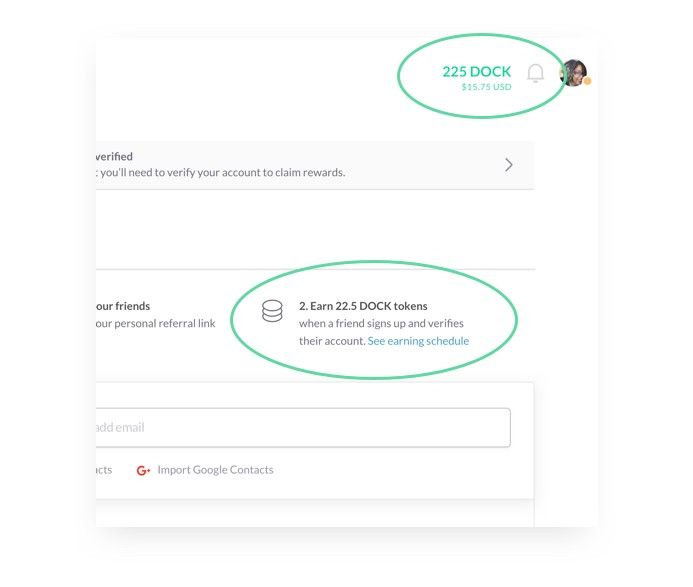
What’s Next?
You should be able to log in to Remote.com with your dock.io account in the coming sprint cycle. This will be a big deployment that will set the stage for other partners to join the network and help us scale!
